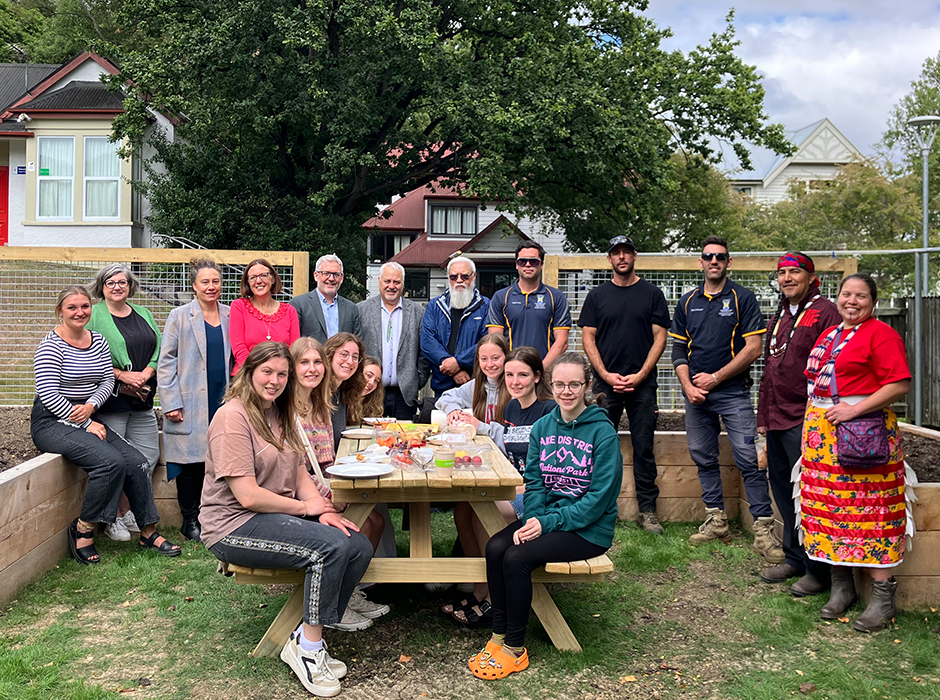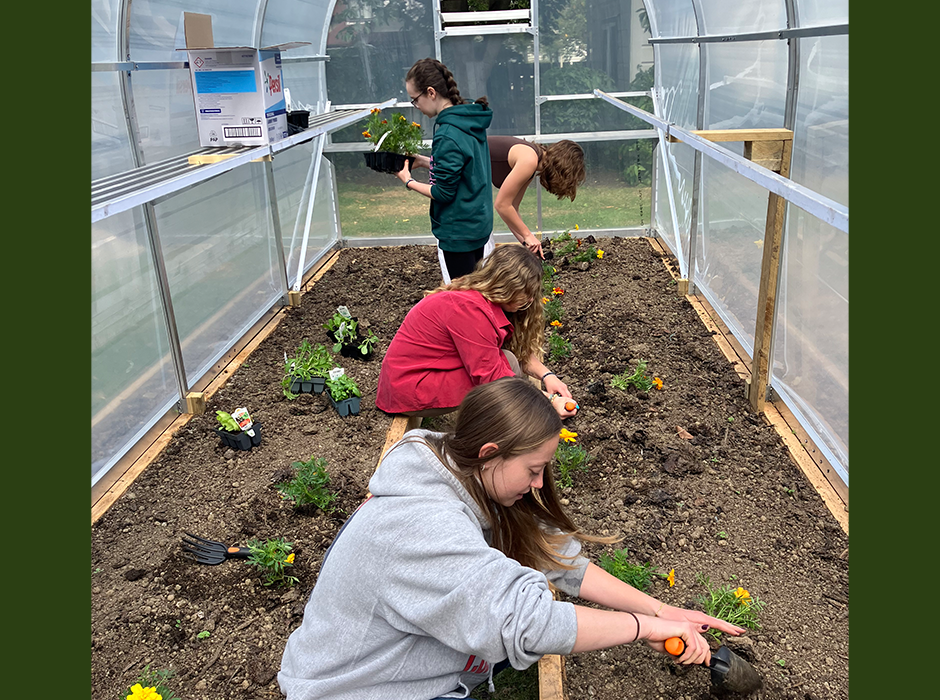
It takes a village to create a village … at the official opening of our University’s second sustainability neighbourhood for students.
A second sustainability neighbourhood has started at our University in Dunedin – with 14 flats housing about 60 students, Tumuaki o Toitū te Taiao | Head of Sustainability Dr Ray O’Brien says.
The students will have the opportunity to live sustainably and learn more skills for their future lives in the University-owned flats which spread from the private street off the east side of Leith Street through to Dundas Street, surrounding the office of Health, Safety and Wellness.
It takes a village
This neighbourhood – Te Rua Tī – is a response to double the number of international students wanting to live sustainably than the 20 places in our existing Sustainability Neighbourhood, of three flats in Great King Street, he says.
The new neighbourhood will also house domestic students as KiwiHosts for the international students, some second-year domestic students, and some doctoral students with their families, including children – “it really will be like a village”.
The flats will be ‘grouped’ in threes and fours, each with their own raised vegetable garden beds, picnic tables, and worm farms. The area is bordered by no-mow zones aimed at increasing biodiversity and sustaining bees.
Te Rua Tī will be getting beehives soon and the traps from Predator Free Dunedin are already in place, he says.

Planting companion marigolds to keep slugs away from the lettuce and spinach about to be planted in the tunnel house are (from front) Sophia Collier, Chelsea Norman-Scott, Phoebe Forster, and Solaya Dofher.
Unified expansion
University Flats Tautiaki | Warden Tracy de Woeps says when she saw the original sustainability neighbourhood operating in University-owned flats as she started her job two years ago, she really liked the concept and thought there should be more.
So, she proposed the cluster of University-owned flats off Leith Street become another sustainability neighbourhood and now, “I want to say a massive thanks to Ray and his team because they’ve put in a massive effort, and it looks great”.
Dr O’Brien says Te Rua Tī and He Kāika Toitū He Kāika Ora (the Great King Street sustainability neighbourhood) will gather for regular sustainability hui (meetings) on topics including pest management, composting, soil health, and worm farms.
The aim is for students flowing through the neighbourhoods to share their experiences with their friends and take their sustainability skills with them when they finish university.
Some international students in the new neighbourhood will change each semester because they are only in New Zealand for that long, while others will be there for up to three years.
In our existing neighbourhood, some students have stayed on from last year and were using the vegetable gardens when they were at their most bountiful , he says.
Peer-led
Both neighbourhoods have a dedicated Sustainability Office Tētēkura – Student Lead, Demi Lawrence, who successfully proposed the role be created after living in He Kāika Toitū He Kāika Ora (the Great King Street sustainability neighbourhood) in 2022.
She filled the Tētēkura role for the first time last year – to create peer guidance to help student residents lead sustainable lives – and is excited about the demand for the second neighbourhood providing “the opportunity to expand and reach more people”.
The neighbourhood’s Te Rua Tī means there is wellbeing in the Tī (cabbage tree) pit.
Maintaining fully stocked storage pits with food from the Tī tree took many hands and great skill. A full pit signified not only a tribe’s ability to sustain itself and others through lean times but the tribe’s commitment as guardians of their environment.
The Sustainability Office is part of the Operations Group which has three top priorities:
Enable – the University to achieve its visions and mission.
Engage – with our students, each other, our customers and externally.
Experience – of our students, our customers, and externally to be outstanding.